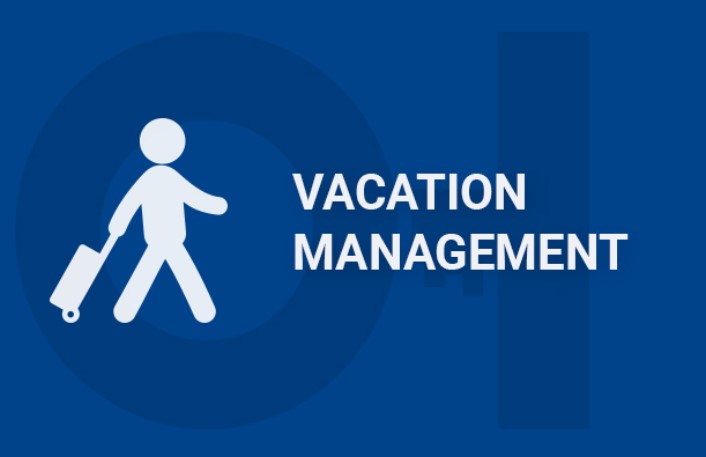Vacation management is an essential aspect of both personal and professional life. Whether for a business or individual, managing vacation time efficiently ensures well-being, improved productivity, and optimal resource use. Below, we explore the key aspects of vacation management, its uses, benefits, and potential disadvantages, along with actionable advice for effective implementation.
What is Vacation Management?
Vacation management refers to the systematic planning, scheduling, and oversight of vacation days for employees or individuals. In the corporate context, it often involves managing time-off requests, ensuring business continuity, and balancing employee workloads. On a personal level, it may involve the careful planning of vacations to optimize leisure and relaxation while considering factors like budgeting and travel arrangements.
Uses of Vacation Management
-
Workforce Planning
- In the business environment, vacation management allows employers to ensure that the team remains productive while allowing employees to take time off. This can include ensuring coverage in critical roles and projects while managing absenteeism.
-
Maximizing Employee Satisfaction
- Offering well-managed vacation options boosts employee morale, making them feel valued and appreciated. Efficient scheduling ensures that time off is not only available but organized in a way that meets personal and professional needs.
-
Streamlining Scheduling Processes
- A well-structured vacation management system reduces confusion over conflicting schedules and ensures that no essential tasks or projects are left unattended when employees are on vacation.
-
Personal Time Management
- For individuals, managing vacation time helps strike the right balance between work, personal life, and rest. Proper planning of vacation days ensures that one maximizes time away without negatively affecting work obligations or missing out on personal events.
Benefits of Vacation Management
-
Increased Productivity and Focus
- Proper vacation management enables employees to take sufficient time away from work. This improves their focus and productivity when they return. Rested employees are typically more engaged and efficient, contributing to overall company success.
-
Employee Well-being
- Taking regular breaks is vital for mental and physical health. Effective vacation management ensures that employees don’t overwork themselves, reducing stress and burnout while improving job satisfaction and work-life balance.
-
Enhanced Employee Retention
- A business that demonstrates good vacation management shows it values its workforce, leading to higher employee retention rates. People are more likely to stay with a company that prioritizes their well-being by offering flexible and well-structured vacation time.
-
Better Work-Life Balance
- For individuals, managing vacation time properly helps maintain a balance between personal commitments, relaxation, and professional responsibilities. This leads to an overall better quality of life and improved mental health.
-
Legal Compliance
- In many countries, there are legal obligations surrounding vacation time. A clear vacation management system ensures businesses stay compliant with labor laws, avoiding legal complications and penalties.
Disadvantages of Vacation Management
-
Complex Scheduling
- One of the primary challenges in vacation management is handling scheduling conflicts. If too many employees request time off at the same time, it may be difficult to ensure coverage, particularly in smaller teams or high-demand periods.
-
Impact on Business Operations
- While employees need time off, excessive vacation requests can sometimes disrupt business operations, particularly in roles that are highly customer-dependent or require specialized knowledge. Careful planning is necessary to prevent a loss in productivity.
-
Potential for Inequities
- If vacation management systems are not well-managed, there can be feelings of favoritism or unfairness. For example, if some employees can take extended time off while others struggle to get time off, it can affect morale.
-
Increased Administrative Costs
- Maintaining an efficient vacation management system, especially in large organizations, may require additional resources or software. The associated costs of tracking, approving, and coordinating vacation requests can be significant.
-
Employee Pressure to Avoid Taking Time Off
- In some work environments, employees might feel reluctant to take time off due to a heavy workload or pressure from employers to stay available. This can be detrimental to both employee well-being and long-term productivity.
Strategies for Effective Vacation Management
-
Clear Vacation Policies
- A well-defined vacation policy is critical. This policy should outline how vacation time is earned, when it can be taken, and how requests should be submitted. A transparent system will help avoid confusion and conflict.
-
Automated Systems for Tracking
- Implementing software for vacation management can help streamline the process. Automated systems allow for easy tracking of vacation balances, approval workflows, and real-time visibility into team availability.
-
Encourage Advance Planning
- Encourage employees to plan vacations well in advance, especially during peak seasons. This allows the team to adjust and allocate resources accordingly to prevent business disruptions.
-
Offer Flexible Vacation Options
- Providing flexible vacation options—such as work-from-home days or extended leave for special occasions—can accommodate both personal preferences and company needs, reducing scheduling conflicts.
-
Regular Communication with Teams
- To ensure effective vacation management, keep open lines of communication with employees regarding upcoming time-off requests. Regularly check on employees’ workloads to prevent burnout or scheduling gaps.
Conclusion
Vacation management is a critical aspect of modern work culture that impacts both individual well-being and business success. Properly managed vacations can result in higher employee morale, increased productivity, and a stronger work-life balance. However, managing vacation requests can also present challenges like scheduling conflicts, administrative burdens, and business disruptions. By implementing clear policies, using automated systems, and fostering a supportive environment, businesses and individuals can make the most out of their time off while ensuring smooth operations.
